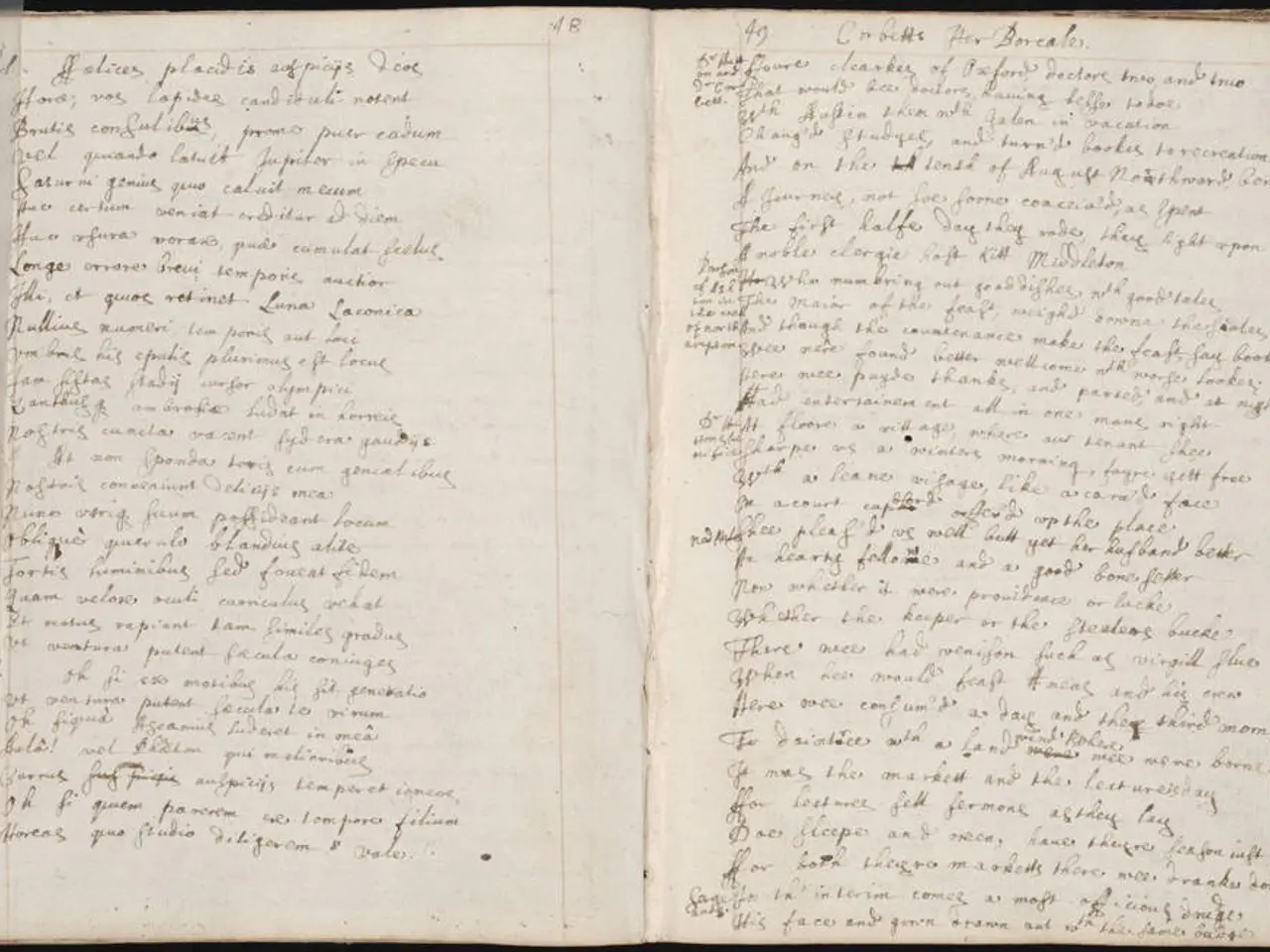Strategies for Achieving Success in a Writing Seminar
Princeton students, take advantage of the valuable opportunities available in the writing seminar to enhance your academic and professional growth. Here's how:
The writing seminar is more than just a course; it's a stepping stone towards honing your writing skills for a variety of assignments and future endeavours. The strategies and resources learned can be applied to professional development and publications.
One of the most effective ways to make the most of your writing seminar experience is by visiting the Writing Center. Scheduling appointments early and coming prepared with specific questions or drafts can help you clarify assignments, improve drafting, and strengthen argument structure. Utilize these sessions not just for proofreading but for strategic writing development.
Meeting with your professor before writing your draft can also be beneficial. Discussing specific aspects of your draft during your 1-on-1 conference can give you a clearer idea on how to improve your final revision. This proactive approach can help avoid writing an entire draft based on an inadequate thesis.
The writing seminar is designed to prepare students for the assignments they will encounter at Princeton throughout their academic career. Every assignment can benefit from trying different strategies to find what works best for the student. For instance, making flowcharts can be helpful, especially for the final paper (R3), as it allows for the organization of ideas and the identification of a motivating question and argument.
The Mary George Research Conference can serve as an additional resource to guide students through writing seminar. Consider attending the conference to see examples of undergraduate research presentations, which can provide inspiration for academic rigor and presentation style. Use the conference abstracts and sessions to deepen your understanding of research methodologies or to connect your writing seminar topics with ongoing scholarly conversations at Princeton.
Scheduling follow-ups with your professor can help ensure that you are implementing their comments effectively. After initial meetings or Writing Center visits, schedule next steps immediately if possible. Use a planner or digital calendar to track deadlines, appointments, and progress checkpoints to avoid last-minute rushes.
Remember, the writing seminar is a challenge for all first-year students at Princeton. However, with the right strategies and resources, it can be an enriching experience that prepares you for the final paper (R3) and beyond. Utilize resources like the Writing Center, advisors, and the Mary George Research Conference to make the most of your writing seminar assignments.
In summary, effective seminar management relies on proactive planning, focused academic support usage, structured writing tools, and leveraging Princeton’s academic events like the Mary George Research Conference for enrichment. For concrete event workshops, seminars, or research-focused resources, exploring Princeton’s mailing lists and academic events could be beneficial.
Use the Writing Center for one-on-one sessions to improve your writing skills and develop effective strategies for various assignments and publications. Proactively schedule appointments early, come prepared with questions or drafts, and utilize these sessions for strategic writing development instead of just proofreading.
For a more immersive learning experience, attend the Mary George Research Conference to witness undergraduate research presentations, gain inspiration for academic rigor and presentation style, and connect your writing seminar topics with ongoing scholarly conversations at Princeton.




